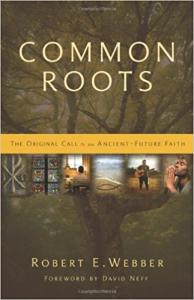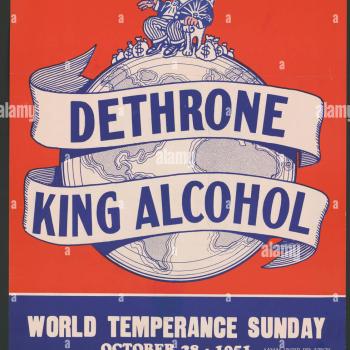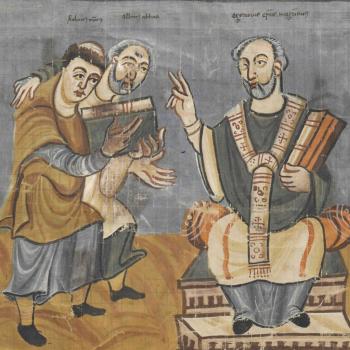According to a 2016 survey by LifeWay Research, fewer than one in three American evangelicals (28%) observe the Christian season of Lent. (Keep in mind that LifeWay defines “evangelical” more narrowly than other organizations.) While that figure is far behind the Roman Catholic equivalent (60%), it’s actually a bit higher than the overall numbers for Americans (20%) and Protestants in general (24%).
So Catholic journalist David Gibson wondered just when evangelicals had begun to embrace a season that is still more closely associated with Catholicism.
When did Evangelicals start observing Lent? https://t.co/FkB7EKT8eB pic.twitter.com/UEhrzIldGc
— David Gibson (@GibsonWrites) February 13, 2018
Was it in 2015, when The Oregonian found evangelical millennials suddenly fasting in Portland? (I think it was around that time that the Baptist university where I teach first offered an Ash Wednesday chapel service that included imposition of ashes.) The year before, a Virginia pastor named Doug Ponder described “an explosion of evangelical observation of Lent” — but he thought it had been growing for a decade. Indeed, Slate reported in 2006 on “the expanding enthusiasm [among Protestants] for the pre-Easter season of penitence and fasting. Lent, it seems, isn’t just for Catholics anymore.”

Protestants, explained writer Andrew Sandella, had inherited the Reformers’ wariness of Lent and its most distinctive discipline. He repeated the oft-told story of the sausage controversy in Ulrich Zwingli’s Zürich, noted Martin Luther’s criticism of fasting as a kind of works-righteousness, and alluded to John Calvin’s anti-Lent diatribe in The Institutes:
Then the superstitious observance of Lent had everywhere prevailed: for both the vulgar imagined that they thereby performed some excellent service to God, and pastors commended it as a holy imitation of Christ… in this splendid display they think that they serve God. I do not mention that at no time do those who would be thought the holiest of them wallow more foully. In short, the highest worship of God is to abstain from flesh, and, with this reservation, to indulge in delicacies of every kind. On the other hand, it is the greatest impiety, impiety scarcely to be expiated by death, for any one to taste the smallest portion of hacan or rancid flesh with his bread. (IV, 12)
But I’m not sure it’s that simple. Digging a bit, I think it’s more accurate to say that American evangelicals have been conflicted about Lent for some time now. Here’s how Christianity Today started a March 1960 editorial on the subject: (republished online forty years later)
Lent constitutes both a challenge and an embarrassment to Protestantism. Each year as the season approaches it brings with it the temptation to equivocate. We do not know where we stand because our feet seem to be stuck in both camps.
What’s more evangelical, after all, than to be drawn to a time of intentional repentance and renewal — and simultaneously to recoil from the merest hint of formalism?
While “a sense of indignation stirs within the Protestant breast, even to the pitch of revolt, at what the Church has done with Lent in the past,” those forty days remained “the most sacred season in the Christian calendar… For the minister to ignore Lent… would seem to be almost as wrong as for the minister to ignore Christmas.” In the end, CT (Carl Henry?) hoped that Lent would again “become a time when material things are put again in their proper secondary position” — so long as “the form support, not obstruct, the way of the Holy Spirit of God who brings life to ritual and free worship alike, and who turns ashes into new men.”
Fourteen years later, that publication again revisited the “challenge… and embarrassment” of Lent via an essay from Decision magazine editor Sherwood Wirt: “The approach of the Lenten season brings a furrow to the evangelical brow. What are we to do with it?… Observe Lent or ignore it? Follow the disciplines or celebrate our Reformation heritage by doing what we please—including staying at home and watching television?”
Ultimately, Wirt planned to attend Ash Wednesday services and recommended Lent to readers as “a time of waiting to get our priorities in order.” But only insofar as that season was one of many chances to live “in the power of the Spirit.” The key was that Jesus “takes our Lent, lengthens it, and makes it a blessing all the year around.”
A year later, Senator Mark Hatfield (one of the central figures in David’s history of politically progressive evangelicals) urged American Christians to mark Lent by supporting the Food for Peace program:
In light of the current world food shortage and the widespread starvation experienced in many of the developing countries, to what greater challenge can we respond at this time than to observe Lent in 1975 in a manner truly consistent with the sacrificial spirit exhibited by our Lord Jesus Christ in the concluding days of His earthly ministry and in His atoning death on the cross.
I happened to be born a few months after Hatfield’s Lenten campaign, and grew up in an evangelical church whose new hymnal had begun to nod to the importance of the Christian year. The 1973 version of The Covenant Hymnal didn’t include a set of Lenten hymns (as it did for the seasons of Advent, Christmas, Epiphany, and Easter), but for the first time it added a full, three-year lectionary, with Lent defined as the season when “the church proclaims, remembers, and responds in gratitude and faith to Christ’s atoning death.” (The 1996 update of that hymnal added a thirteen-hymn section on “Lent: Suffering” and fourteen more on “Holy Week: Death” — in between “Epiphany: Life” and “Easter: Resurrection.”)
But the other hymnal I remember from childhood, Fred Bock’s Hymns for the Family of God (1976), made no mention at all of Lent or Holy Week (and lumped Advent and Epiphany with Christmas). And to be honest, I can’t remember attending an Ash Wednesday service. Apart from carols at Christmas and fancier clothes at Easter, I don’t recall much seasonal change in worship.

But then this was the same decade that Wheaton professor Robert Webber first issued his “ancient-modern” call for evangelicals to recognize how some of “their beliefs and practices are not consistent with historic Christianity” — including their practices of worship. In Common Roots: A Call to Evangelical Maturity (1978), Webber concluded his discussion of worship by urging evangelicals “to restore the Christian concept of time, especially as it relates to the restitution of the church year. The secularization of worship is perhaps most obvious in the typical evangelical church calendar.” In part by observing seasons like Lent (“a time of renewal and preparation for the major events of the Christian understanding of time”), he argued, evangelicals might “be able to overcome the man-centeredness and lack of content which has helped to create the yearning for a more fulfilling experience of worship.”
In his 2006 piece for Slate, Sandella also suggested the influence of another 1978 book: Richard Foster’s Celebration of Discipline, which he says “encouraged churchgoers to rediscover fasting and meditation in “answer to a hollow world” and as a way to turn toward God. Some questing Protestants started making like monks, practicing silence and solitude.” Just last week Foster wrote for Renovaré on practicing Ignatian exercises for Lent, but I’m not sure that that season is named in Celebration of Discipline — even in its chapter on fasting.
(Researching this post in our seminary library, I stumbled across three books on fasting published in 1997 by leading evangelicals: Campus Crusade founder Bill Bright and Baptist pastors Ronnie Floyd and John Piper. None mention Lent, though Piper quoted from an 1881 Lenten sermon on fasting by Episcopal clergyman Phillip Brooks: “We are looking forward to a soberer and quieter life, a life which in some form or other is to fast from some of its indulgences. And the old danger comes up with the old duty, the danger lest the fasting should become to us as dead a thing as it was to those Jews.” For more on fasting at Lent, see earlier posts by Agnes and Philip.)
While I’m sure Foster helped many evangelicals recover an interest in spiritual disciplines beyond prayer and Bible study, I’m not sure they necessarily attach such practices to a certain season. The LifeWay survey suggests that Protestants remain far less likely than Catholics to fast for Lent, with evangelicals instead treating it as a season of more (worship, prayer) than less (food, Facebook). Some of us evangelicals even invest time in reading — and editing — devotionals for Lent.
However it’s marked, I do think there can be significant spiritual value in observing this season. So if you’re among the 72% of evangelicals who don’t keep Lent in any way, consider Webber’s argument from Ancient-Future Time: Forming Spirituality through the Christian Year (2004):
For most people coming from my background, an Ash Wednesday service and Lent are quite foreign and somewhat threatening… Lent appears to be dark and foreboding. It reminds Protestants of the Roman Catholic practices—ritualism, works, fasting, vigils, and the like. Haven’t we been saved from all of that? Didn’t the Reformers free us from having to do works and pilgrimages and such things? …Preparing for Easter for seven weeks was unthinkable, ludicrous, even pagan. But now I am constrained to ask: Who is the pagan? Yes, it is wrong to go through the motions of Ash Wednesday and Lent in a mechanical, uninvolved way. But it is also wrong to ignore any kind of preparation for the Easter event. Happily there is an alternative for both Catholics and Protestants: Recover the true spiritual intent of Ash Wednesday and the Lenten spiritual pilgrimage.
















